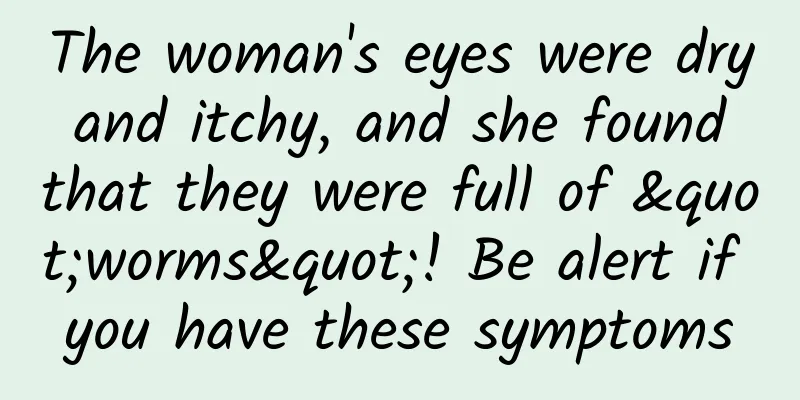Why didn't I get pregnant after the follicles were released?

|
Some women who are trying to get pregnant have not gotten pregnant after a long time, which makes those who are preparing to be mothers feel very anxious. They go to the hospital for a check-up and find that the follicles have been discharged, but they are not pregnant. In fact, there are many factors that cause infertility, including male sperm problems, etc. Even a good or bad mood can affect a woman's conception. First of all, it is recommended that men and women go to the hospital for a comprehensive examination to confirm the cause and treat the symptoms. Then, many people still don’t understand why the follicles are discharged but the pregnancy is not happening. Why the follicles are discharged but the pregnancy is not happening? Let’s take a look at it next. 1. Why don’t you get pregnant after the follicles are released? There are many factors that affect fertility, such as ovulation disorders, fallopian tube obstruction, ovarian dysfunction, uterine dysfunction, immune factors, etc. It is not possible to get pregnant as long as ovulation is normal. It is recommended to check the cause. 2. Ovulation Ovulation is the release of a mature egg from the ovary. After a woman is born, there are about 300,000 to 600,000 follicles in both ovaries, but in a person's lifetime, only about 400 follicles can mature, and the rest degenerate. The process in which the mature follicle ruptures and the egg is discharged from the ovary into the abdominal cavity is called ovulation. Ovulation usually occurs about 14 days before your period. For example, if your period starts on October 28, then October 14 is the ovulation period. 3. Ovulation Day A woman's ovulation date is generally about 14 days before the next menstrual period. Starting from the first day of the next menstrual period, counting down 14 days or subtracting 14 days is the ovulation day. The ovulation day and the 5 days before and 4 days after the ovulation day are called the ovulation period. Safe period. Many people think that there is no need to use any contraceptive drugs or tools during sexual intercourse during the safe period. In fact, the "safe period" is not absolutely safe, because men's sperm can survive in women's bodies for 3 to 5 days, and women's ovulation date may also be advanced or delayed. Therefore, it is very unsafe to rely solely on safe period contraception. Taking contraceptive drugs correctly or using condoms can ensure the contraceptive rate to the greatest extent. |
<<: Standards for high-quality follicles
Recommend
How long does it take for the ovulation test paper to turn positive
For those who really want to have a child, choosi...
Hyperplasia of labia minora
Just like men with long foreskin, women can also ...
Dull pain above the navel in women
Belly button pain is not very common, it is usual...
Treatment of single fallopian tube adhesion
The occurrence of adhesion of one side of the fal...
How to relieve chest pain before menstruation
Chest pain is a symptom that some women experienc...
Symptoms of gastroptosis after childbirth
Many women experience adverse effects after givin...
Seven little things to make your skin beautiful
Skin care is actually very simple. Just remember ...
Pelvic Endometriosis Stage 1
When a woman goes to the hospital for a physical ...
What to do if there is a cystic and solid mass in the left adnexal area
The cystic-solid mass in the left adnexal area is...
Is it good for women to eat kiwi fruit?
Kiwi, also known as kiwi fruit. In recent years, ...
How do diabetics survive the dog days of summer (Strategy 3)
The hot summer days are unbearable, often making ...
This highly hidden cancer has killed too many people.
Liver cancer has taken too many lives. Hong Kong ...
What to do about menopausal melasma? Middle-aged women should watch out
Women will enter menopause when they are in their...
Menstruation is delayed for 4 days. What is the reason for chest tightness and vomiting?
As we all know, women have menstruation every mon...









